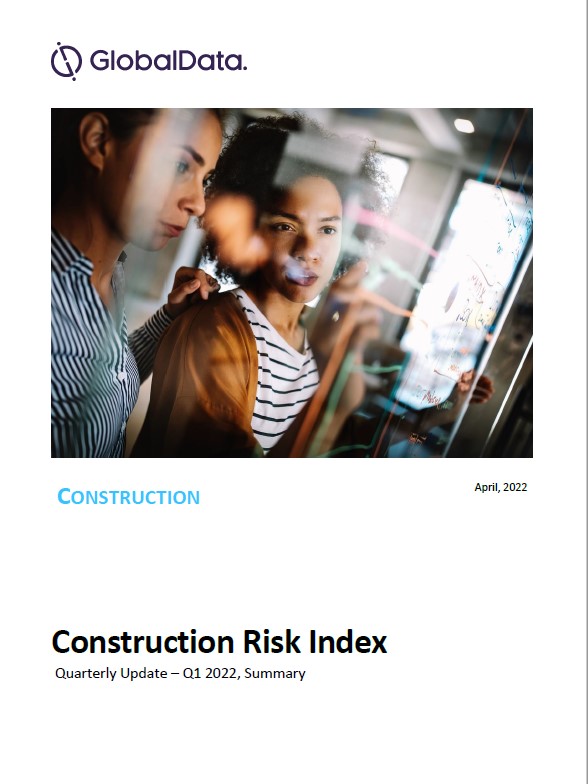
Corruption in Latin America is one of the biggest threats in the region, hampering development and investment in critical sectors such as transport, energy and telecommunications with millions of dollars often ending up being exchanged in bribes for public works contracts.
The large number of construction projects being delayed or cancelled over the past years related to corruption scandals throughout the region is indicative of how corruption is harming the industry.
How well do you really know your competitors?
Access the most comprehensive Company Profiles on the market, powered by GlobalData. Save hours of research. Gain competitive edge.

Thank you!
Your download email will arrive shortly
Not ready to buy yet? Download a free sample
We are confident about the unique quality of our Company Profiles. However, we want you to make the most beneficial decision for your business, so we offer a free sample that you can download by submitting the below form
By GlobalDataCorruption in LatAm construction industry
On 21 May, the first corruption trial of former Argentine president Cristina Fernández de Kirchner started. Ms Fernandez, who was president of Argentina for two terms, from 2007 until 2015, is being accused of accepting bribes from construction firms in exchange for lucrative public works contracts while president.
In Peru, the last four presidents have been implicated of laundering money and accepting bribes in return of contracts related to the massive Odebrecht’s corruption scandal, with former president Alan Garcia committing suicide on 17 April as police arrived at his home to arrest him over allegations he took bribes from the Brazilian giant. In Brazil, hundreds of leading politicians and executives are also being accused and sent to jail over the same claims, including Odebrecht boss, Marcelo Odebrecht, and former president Lula Da Silva.
The Odebrecht corruption scandal that started in Brazil in 2014 and spread throughout countries in Latin America in the following years is one of the most notable examples of the widespread presence of corrupt practices in the region. Odebrecht is one of the companies that were involved in the so-called ‘Operacao Lava Jato’ corruption investigation where dozens of companies admitted paying bribes to politicians and officials in exchange for contracts with Petrobras, Brazil’s state oil firm.
For many years, Odebrecht has built some of Latin America’s most important infrastructure projects. But in December 2016, the firm was forced to acknowledge it has paid around US$788 million in bribes to government officials in 12 countries in order to secure public works contracts dating back more than a decade. These countries include Brazil, Argentina, Colombia, Peru, Venezuela, Mexico and Ecuador.
Nevertheless, on 2 May, the Brazilian conglomerate rebranded as OEC and replaced its logo from red to green, blue and grey in an attempt to distance itself from the number of investigations, saying that it is embarking on a “transformational journey”. However, given the ongoing number of investigations currently taking place and new cases being uncovered across the region, it appears that the company’s massive scandal still has some way to go.
On 26 April, the Mexican government placed a three-year ban on Odebrecht from doing business with any federal agencies and state-run companies. State-owned entities, such as oil firm Pemex, are prohibited from entering into a contract with Odebrecht or receiving bidding proposals from the firm. Colombia has also banned Odebrecht from carrying out works of any activity for the next 10 years.
Improving transparency
Meanwhile, Peru is currently eying blockchain technology to combat government corruption over the same corruption scandal involving Odebrecht. The government recently announced that it has partnered with blockchain startup Stamping.io to build a transparent contract-procurement system. The project, which relies on LAC-Chain (a multi-country blockchain ecosystem developed by the Inter-American Development Bank to promote a blockchain ecosystem in Latin America and the Caribbean), seeks to create a verification system for government contracts that is resistant to unauthorised deliveries and receptions, data manipulation, or any other fraudulent procedures that could assign a contract to a company with no adequate documentation.
While these are welcome efforts to improve transparency and simplify procedures for investment, policymakers across Latin America will need to do more to tackle corruption practices across the region, including establishing more bankable and viable project pipelines, and improving governance and law enforcement, as well as developing strategies that will stimulate business innovation and the training of people with specialised skills.
China
China’s involvement in infrastructure projects in Latin America and its reluctance to require reasonable standards for projects and loans related to its global Belt and Road Initiative is at present encouraging more corruption and debt in the region and leading governments to pursue economically and environmentally unsustainable projects. The local backlash against the lack of adequate environmental assessments and labour concerns are also some of the main challenges facing infrastructure projects funded by China in the region.
In addition, China’s willingness to invest in corrupt and risky countries with few sources of financing is also propping up authoritarianism, especially in countries such as Venezuela where Chinese loans have never been approved by a legitimate parliament. Take the recent US$5 billion loan from China to Venezuela, even though Venezuela has been on the verge of defaulting on loan payments to Chinese banks.





Related Company Profiles
OEC, SA
Pemex Inc